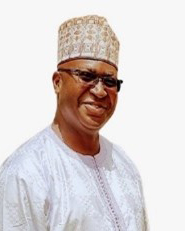Religions’ Roles in Peacebuilding in The Gambia

His Excellency Ambassador Professor Muhammadou M.O. Kah is Ambassador of The Republic of The Gambia to the Swiss Confederation and is a permanent representative to the United Nations Office at Geneva, the World Trade Organization, and other international organizations at Geneva. The following is an edited summary of his remarks at the ICLRS 29th Annual International Law and Religion Symposium, 4 October 2022.
The Gambia Post-2017: Vision with Action
The Gambia places a high priority on the promotion and protection of human rights. Our constitution and supporting legislation reflect that, as do ongoing legislative and criminal justice reforms that began in 2017. The year 2017 is an important one for The Gambia, which was held hostage for 22 years under a dictatorship. The country’s human rights credentials were unimpeachable prior to those 22 years. Since 2017, when the people of The Gambia decided to vote out the 22-year dictatorship, the country has embarked on restoring what it was known for: being the true hub of human dignity and human rights, peace, and security in West Africa, and an example for the African continent. We strive to ensure that our citizens can exercise their civil, political, economic, social, and cultural rights effectively, regardless of their ethnicity, race, place of origin, political opinion, gender, and importantly, their religion. Accordingly, the government’s vision of putting in place solid mechanisms in 2017 to promote and protect human rights in The Gambia has borne fruits, although the work towards its sustainability continues. This reminds me of words invoked by the late former president of South Africa, Nelson Mandela: “Action without vision is only passing time. Vision without action is merely daydreaming. But vision with action can change the world.”[1]
